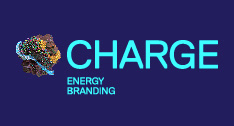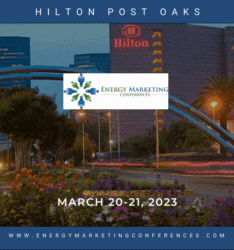|
|
|
|
|
PUC Staff, Choice Utility Reach Settlement To Allow Utility To Offer Carbon Offset Product; Retail Suppliers Oppose As "Plain Discrimination", Citing Billing
The following story is brought free of charge to readers by VertexOne, the exclusive EDI provider of EnergyChoiceMatters.com
A non-unanimous settlement among the Pennsylvania PUC's Bureau of Investigation and Enforcement (I&E), the Office of Small Business Advocate (OSBA), and Columbia Gas of Pennsylvania, Inc. would allow Columbia to offer to its customers a voluntary carbon offset product on a pilot basis
The Retail Energy Supply Association, Shipley Choice, LLC and NRG Energy, Inc. are opposed to the settlement. The Office of Consumer Advocate is also among parties opposed to the settlement
The settlement would approve, subject to the settlement's terms, Columbia's Green Path Rider
pilot program, which is described as, "a fee based, opt-in program that would allow customers an option to reduce some
or all of their emissions related to their natural gas usage."
To do this, Columbia would purchase
renewable natural gas (RNG) environmental attributes and carbon offsets to match the
customer’s election of either a 50% or 100% reduction in their emissions, and the customer will
be charged an additional fee per therm that reflects the cost of the RNG environmental attributes
and carbon offsets purchased by Columbia on behalf of the customer.
Under the settlement, all carbon offsets must be from projects located in North America
The settlement would provide that Columbia would implement the Green Path Rider as a three-year pilot program
(September 1, 2023 – August 31, 2026), with the option to file for a two-year renewal that would
continue the pilot program through to August 31, 2028
Columbia had originally proposed a five-year pilot term
The settlement provides that the one-time information technology (IT) costs and
annual expense for consumer education will be recovered only from participating customers
through the Green Path Rider rate. Columbia would recover the one-time IT costs over the 3-year period of the initial pilot program term.
If Columbia opts to extend the program for an additional 2 years, to the extent
that the IT costs have not been fully recovered, Columbia may continue to recover this cost
from participating customers, the settlement provides
"In light of recovering costs from the participating customers, the
Company [Columbia] shall not seek to recover any portion of the one-time IT costs in base rates applicable to
all customers," the settlement states
Columbia had originally proposed to recover costs from all customers eligible for the pilot, through base rates
The settlement provides that Columbia shall provide an annual report on the pilot including:
• the number of customers enrolled in the program per month, including a
breakdown of residential and commercial customers by participation level;
• the number of participants who involuntarily exited, number of program
participants who re-enrolled, and number of participants who did not re-enroll;
• the number of renewable natural gas ('RNG') environmental attributes and
carbon offsets purchased for the program;
• the entit(ies) that certified and verified the RNG environmental attributes or
carbon offset;
• the price and costs, paid by the Company on a bundled basis, of RNG
environmental attributes and carbon offsets purchased for the program (if the
bundled price changes during the program year, both the old price and the new
price shall be clearly communicated in the annual report);
• the supply of carbon offsets purchased for the program; this includes the State,
Territory, or Province where projects are located, as well the category of each
project generating credits sold to the Company for the GPR (e.g., energy
efficiency, landfill gas, forestry);
• information as to the origin of the RNG environmental attributes and carbon
offsets purchased for the program; and
• summary of program activities, as well as a copy of any customer education
materials sent to customers.
Additionally, under the settlement, Columbia will provide customer education materials concerning the carbon offset product to OCA and OSBA
The Retail Energy Supply Association, Shipley Choice, LLC and NRG Energy, Inc. (RESA/NGS Parties) said in a brief that the pilot, "suffers from numerous flaws that make it unsuitable, and illegal as a tariffed, default service product."
In a reply brief filed the same day the settlement was filed, the RESA/NGS Parties said, "the GPR [pilot] is a competitive non-basic product, yet was submitted as a tariff supplement seeking Commission approval, for which Columbia plans to recover the O&M expenses related to the offering through base distribution rates, despite proposing to collect the IT related startup costs from the initial GPR customers. Perhaps most egregious is the fact that GPR is being offered as a competitive product and yet Columbia has proposed to not apply any of the requirements of the Standards of Conduct, 52 Pa. Code §§ 62.141-142."
"The evidence shows that Columbia’s market strength as the incumbent Natural Gas Distribution Company ('NGDC') and as the default service provider, will allow it to market a product that already is available to customers in the market and use its control of the consolidated customer bill to keep NGSs from providing competing products on a comparable basis," the RESA/NGS Parties said
In a reply brief filed the same day the settlement was filed, the RESA/NGS Parties alleged, "Columbia also makes an effort to not mention the source of the carbon offsets, which according to at least one witness could come from virtually anywhere in the world. Coupled with the lack of any examples of what the oft-touted consumer education materials might look like, this use of information about a competitive product appears to be an effort by Columbia to leverage its status as the utility to convince customers that the product is somehow more worthy than others. This approach is distressing to competitors because it is only possible because of Columbia’s market power but should also be distressing to the Commission because the imprimatur sought by a utility filing a competitive product as a tariffed service goes beyond merely seeking to impact the judgement of its prospective customers – it seeks to involve the Commission as further endorsement. The Commission should not put its finger on the competition scale in favor of an incumbent in the manner that Columbia seeks here."
The RESA/NGS Parties alleged, "Columbia’s tariff expressly prohibits suppliers from billing charges for carbon neutral products via the purchase of receivables ('POR') program, and because Columbia is statutorily the only party that may issue a consolidated bill (a bill that contains charges for distribution service and commodity charges - whether rendered for default service or competitive supply from an NGS) and because Columbia intends to bill for the non-basic GPR using the utility bill, it is providing itself an advantage that puts suppliers at a disadvantage. This is plain discrimination."
The RESA/NGS Parties alleged, "Regardless, Columbia has not proposed to break out and separately recover the expense of billing for GPR or including that expense as part of the GPR charge. Rather, Columbia intends to recover billing costs from all customers as a general overhead expense, including competitive supply customers, even though it will not bill carbon offset product charges for suppliers. Such a result is wrong for two reasons. First, as discussed above, it violates the Standards of Conduct. Second, it violates the Commission’s order in a prior case involving Columbia, where Columbia refused to bill for other non-commodity products being offered by NGSs on the utility bill even though
Columbia was billing for the same products for former affiliates."
"The bottom line is that billing for a particular 'competitive' non commodity product for
one’s own marketing operation, which is subject to the Standards of Conduct, while not doing the
same for a competing NGS who has no choice but to use the Utility consolidated bill, is
discrimination and independently violates both 52 Pa. Code § 62.142(11) and 66 Pa. C.S. §
2203(4). It is discrimination in the provision of billing service, which this Commission has many
times concluded is part of the broadly defined term 'service' found at 66 Pa. C.S. § 102," the RESA/NGS Parties alleged
Docket Nos. R-2022-3032167 et al.
ADVERTISEMENT ADVERTISEMENT Copyright 2010-23 Energy Choice Matters. If you wish to share this story, please
email or post the website link; unauthorized copying, retransmission, or republication
prohibited.
March 23, 2023
Email This Story
Copyright 2010-21 EnergyChoiceMatters.com
Reporting by Paul Ring • ring@energychoicematters.com

NEW Jobs on RetailEnergyJobs.com:
• NEW! -- Channel Sales Manager -- Retail Supplier
• NEW! -- Business Development Manager
• NEW! -- Operations Manager/Director -- Retail Supplier -- Texas
• Senior Scheduler -- Retail Supplier
• Channel Sales Manager -- Retail Supplier (Houston)
|
|
|
|








